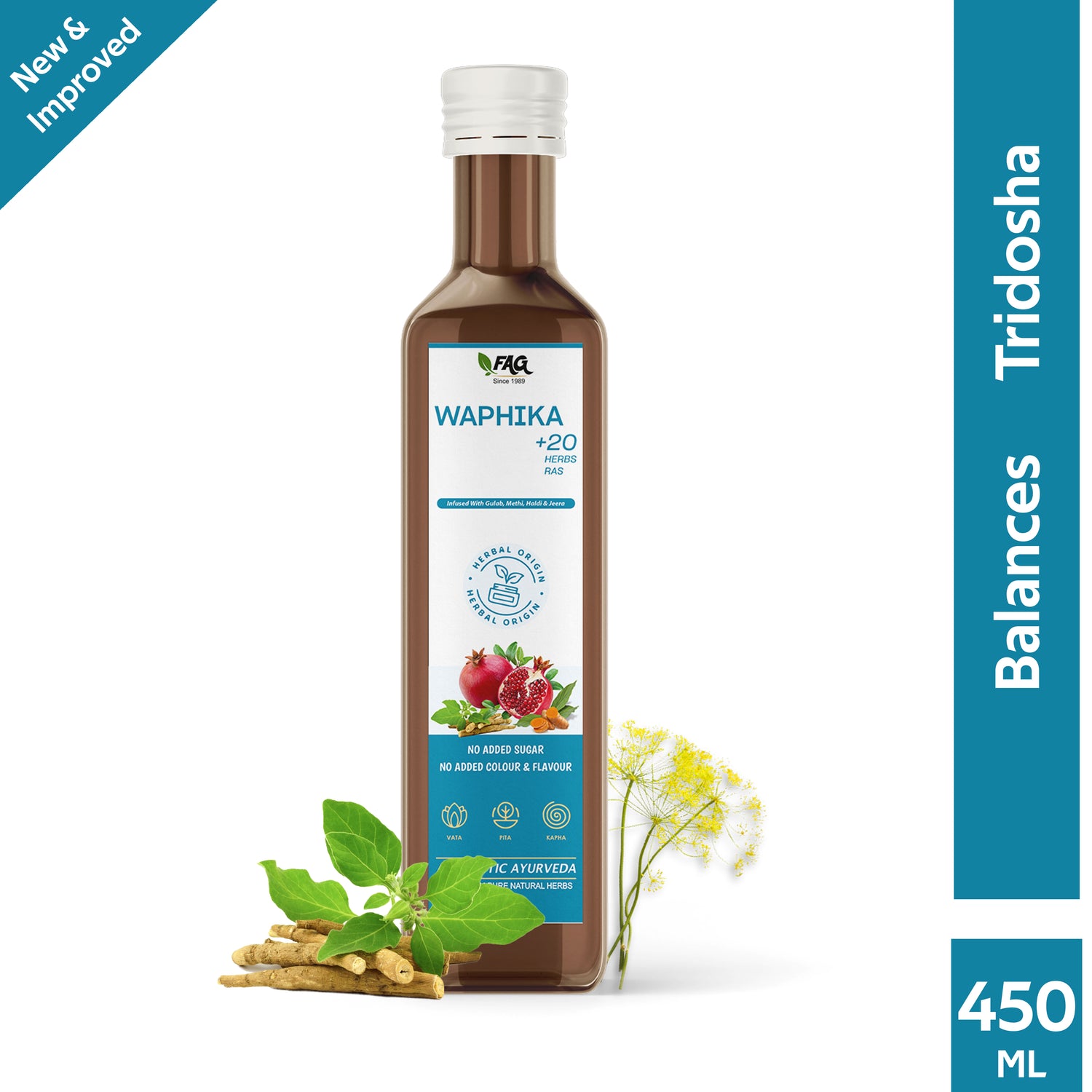
How To Manage Tridosha ?
Share
In Ayurveda, the ancient system of medicine from India, "Tridosha" refers to the three fundamental energies that govern physiological and psychological processes in the body. The three doshas are:
1. **Vata**: Composed of space and air, Vata governs movement, circulation, and communication. It is responsible for bodily functions that involve movement, such as nerve impulses and the circulation of blood.
2. **Pitta**: Comprised of fire and water, Pitta is associated with digestion, metabolism, and energy production. It regulates the body’s metabolic processes, including the digestion of food and the transformation of energy.
3. **Kapha**: Made up of water and earth, Kapha is related to structure, stability, and lubrication. It governs growth, immunity, and physical strength.
How to Manage Tridosha
1. **Identify Your Dosha**: Understanding your dominant dosha is essential for effective management. You can take online quizzes or consult an Ayurvedic practitioner for an accurate assessment.
2. **Dietary Adjustments**:
- **Vata**: Warm, nourishing foods are beneficial. Include healthy fats, grounded foods, and sweet, sour, and salty flavors. Avoid dry, cold, or raw foods.
- **Pitta**: Cooling and calming foods are ideal. Incorporate sweet, bitter, and astringent flavors. Limit spicy, acidic, and fried foods.
- **Kapha**: Light and warming foods work best. Focus on bitter and astringent flavors and minimize heavy, oily, or sweet foods.
3. **Lifestyle Practices**:
- **Vata**: Establish routines to balance this inactive dosha. Practice grounding exercises, yoga, or meditation. Keep warm and stay hydrated.
- **Pitta**: Engage in cooling and calming activities like swimming or practicing mindfulness. Avoid overstimulation and aggression.
- **Kapha**: Incorporate regular exercise to stimulate movement. Avoid excessive sleep and heavy meals. Focus on activities that energize and uplift your spirits.
4. **Herbs and Supplements**:
- **Vata**: Ashwagandha, sesame oil, and licorice can help balance Vata.
- **Pitta**: Coriander, mint, and aloe vera are cooling herbs that can soothe Pitta.
- **Kapha**: Ginger, turmeric, and black pepper can stimulate metabolism and reduce Kapha.
5. **Seasonal Adjustments**: Adapt your lifestyle and diet according to the seasons, as each season can affect the doshas differently:
- **Vata**: More prevalent in the fall and winter; incorporate warming, nourishing practices.
- **Pitta**: Peaks during summer; focus on cooling foods and activities.
- **Kapha**: More noticeable in spring; engage in stimulating practices to shake lethargy.
6. **Mindfulness and Stress Management**: Regular meditation, breathing exercises, and mindfulness practices can help achieve emotional balance and reduce stress, which can aggravate the doshas.
7. **Regular Detox**: Consider seasonal detoxification practices, such as Panchakarma, to clear accumulated doshic imbalances under the guidance of a qualified practitioner.
8. **Consult an Ayurvedic Practitioner**: For personalized advice and treatment plans, it is beneficial to consult with a trained Ayurvedic practitioner who can provide a detailed assessment and suggest tailored strategies.
By understanding and managing your Tridosha, you can promote better health, enhance well-being, and achieve a balanced lifestyle aligned with your unique constitution.
1. **Vata**: Composed of space and air, Vata governs movement, circulation, and communication. It is responsible for bodily functions that involve movement, such as nerve impulses and the circulation of blood.
2. **Pitta**: Comprised of fire and water, Pitta is associated with digestion, metabolism, and energy production. It regulates the body’s metabolic processes, including the digestion of food and the transformation of energy.
3. **Kapha**: Made up of water and earth, Kapha is related to structure, stability, and lubrication. It governs growth, immunity, and physical strength.
How to Manage Tridosha
1. **Identify Your Dosha**: Understanding your dominant dosha is essential for effective management. You can take online quizzes or consult an Ayurvedic practitioner for an accurate assessment.
2. **Dietary Adjustments**:
- **Vata**: Warm, nourishing foods are beneficial. Include healthy fats, grounded foods, and sweet, sour, and salty flavors. Avoid dry, cold, or raw foods.
- **Pitta**: Cooling and calming foods are ideal. Incorporate sweet, bitter, and astringent flavors. Limit spicy, acidic, and fried foods.
- **Kapha**: Light and warming foods work best. Focus on bitter and astringent flavors and minimize heavy, oily, or sweet foods.
3. **Lifestyle Practices**:
- **Vata**: Establish routines to balance this inactive dosha. Practice grounding exercises, yoga, or meditation. Keep warm and stay hydrated.
- **Pitta**: Engage in cooling and calming activities like swimming or practicing mindfulness. Avoid overstimulation and aggression.
- **Kapha**: Incorporate regular exercise to stimulate movement. Avoid excessive sleep and heavy meals. Focus on activities that energize and uplift your spirits.
4. **Herbs and Supplements**:
- **Vata**: Ashwagandha, sesame oil, and licorice can help balance Vata.
- **Pitta**: Coriander, mint, and aloe vera are cooling herbs that can soothe Pitta.
- **Kapha**: Ginger, turmeric, and black pepper can stimulate metabolism and reduce Kapha.
5. **Seasonal Adjustments**: Adapt your lifestyle and diet according to the seasons, as each season can affect the doshas differently:
- **Vata**: More prevalent in the fall and winter; incorporate warming, nourishing practices.
- **Pitta**: Peaks during summer; focus on cooling foods and activities.
- **Kapha**: More noticeable in spring; engage in stimulating practices to shake lethargy.
6. **Mindfulness and Stress Management**: Regular meditation, breathing exercises, and mindfulness practices can help achieve emotional balance and reduce stress, which can aggravate the doshas.
7. **Regular Detox**: Consider seasonal detoxification practices, such as Panchakarma, to clear accumulated doshic imbalances under the guidance of a qualified practitioner.
8. **Consult an Ayurvedic Practitioner**: For personalized advice and treatment plans, it is beneficial to consult with a trained Ayurvedic practitioner who can provide a detailed assessment and suggest tailored strategies.
By understanding and managing your Tridosha, you can promote better health, enhance well-being, and achieve a balanced lifestyle aligned with your unique constitution.

